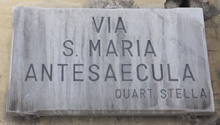[�4�������>c�c��qɻ�|( �l�5���P���,��(k.���{᪓}��I�ͳ�@���ļo<6�4'h��B��m�� ��� �r@P���x�w�2��`{�K.oI5AS╙�SnQ\9��tb#��*v ����4���u!��Ǔ�jp�1��j�A֝�`It�e(P�K_l���*8ހ����ĩ��c��K8�IE��`� �\���f� �"c�J0,!�d��0[@����aJ1�����k��l With its specific character as a discipline charged with giving an account of faith (cf. Hence the need for a preliminary clarification. Fides et Ratio : A Philosophical Response Andrew Murray Published, Journal of Religious Education 47/4 (1999): 58-61. On her part, the Church cannot but set great value upon reason's drive to attain goals which render people's lives ever more worthy. Endowed as it is with an openness and originality which allow it to stand as the science of faith, theology has certainly challenged reason to remain open to the radical newness found in God's Revelation; and this has been an undoubted boon for philosophy which has thus glimpsed new vistas of further meanings which reason is summoned to penetrate. On a number of occasions, the Second Vatican Council stressed the positive value of scientific research for a deeper knowledge of the mystery of the human being.85 But the invitation addressed to theologians to engage the human sciences and apply them properly in their enquiries should not be interpreted as an implicit authorization to marginalize philosophy or to put something else in its place in pastoral formation and in the praeparatio fidei. In short, what for Patristic and Medieval thought was in both theory and practice a profound unity, producing knowledge capable of reaching the highest forms of speculation, was destroyed by systems which espoused the cause of rational knowledge sundered from faith and meant to take the place of faith. It is not the wisdom of words, but the Word of Wisdom which Saint Paul offers as the criterion of both truth and salvation. In interiore homine habitat veritas).21. The truths of faith make certain demands which philosophy must respect whenever it engages theology. If the Magisterium has spoken out more frequently since the middle of the last century, it is because in that period not a few Catholics felt it their duty to counter various streams of modern thought with a philosophy of their own. 75. La fede e la ragione sono come le due ali con le quali lo spirito umano s'innalza verso la contemplazione della verità. With the Revelation of God Israel could plumb the depths of all that she sought in vain to reach by way of reason. 12. 68. What is striking about these biblical texts, if they are read without prejudice, is that they embody not only the faith of Israel, but also the treasury of cultures and civilizations which have long vanished. An initial problem is that of the relationship between meaning and truth. \r�1pK<1�#�mv�$�:]��'|X$��ȥ�R In such cases, we are clearly dealing with a âphilosophical prideâ which seeks to present its own partial and imperfect view as the complete reading of all reality. • Jan Paweł II, „Fides et Ratio”, O relacjach między wiarą a rozumem, Encyklika, Rzym, 14.09.1998r. Yet, for all the toil involved, believers do not surrender. 3: 16). Whoever lives for the truth is reaching for a form of knowledge which is fired more and more with love for what it knows, while having to admit that it has not yet attained what it desires: âTo see you was I conceived; and I have yet to conceive that for which I was conceived (Ad te videndum factus sum; et nondum feci propter quod factus sum)â.42 The desire for truth, therefore, spurs reason always to go further; indeed, it is as if reason were overwhelmed to see that it can always go beyond what it has already achieved. Everyday life shows well enough how each one of us is preoccupied by the pressure of a few fundamental questions and how in the soul of each of us there is at least an outline of the answers. 91. The truth communicated in Christ's Revelation is therefore no longer confined to a particular place or culture, but is offered to every man and woman who would welcome it as the word which is the absolutely valid source of meaning for human life. In synthesizing and solemnly reaffirming the teachings constantly proposed to the faithful by the ordinary Papal Magisterium, the First Vatican Council showed how inseparable and at the same time how distinct were faith and reason, Revelation and natural knowledge of God. 86. It is the nature of the human being to seek the truth. Publication Date : Binding: Encuadernación de tapa blanda. Today, as the Gospel gradually comes into contact with cultural worlds which once lay beyond Christian influence, there are new tasks of inculturation, which mean that our generation faces problems not unlike those faced by the Church in the first centuries. 97. And how is it that we hear, each of us in his own native language? Print - PDF. |�Xoچ(��9�z�S>E_�I�VZ�|��ʗ3w�|9{漙;+g��9,�f��ۧ�8 ���)�l�yY1�o�ϲ�"��x�tl���E�6/�d�(M�9���x�� . La fe y la razón (Fides et ratio) son como las dos alas con las cuales el espíritu humano se eleva hacia la contemplación de la verdad. In consequence, the human spirit is often invaded by a kind of ambiguous thinking which leads it to an ever deepening introversion, locked within the confines of its own immanence without reference of any kind to the transcendent. The truth about himself and his life which God has entrusted to humanity is immersed therefore in time and history; and it was declared once and for all in the mystery of Jesus of Nazareth. Everyday life shows how concerned each of us is to discover for ourselves, beyond mere opinions, how things really are. Speculative dogmatic theology thus presupposes and implies a philosophy of the human being, the world and, more radically, of being, which has objective truth as its foundation. They are born into a family and in a family they grow, eventually entering society through their activity. The Apostle accentuates a truth which the Church has always treasured: in the far reaches of the human heart there is a seed of desire and nostalgia for God. Just as the Virgin was called to offer herself entirely as human being and as woman that God's Word might take flesh and come among us, so too philosophy is called to offer its rational and critical resources that theology, as the understanding of faith, may be fruitful and creative. If the intellectus fidei wishes to integrate all the wealth of the theological tradition, it must turn to the philosophy of being, which should be able to propose anew the problem of beingâand this in harmony with the demands and insights of the entire philosophical tradition, including philosophy of more recent times, without lapsing into sterile repetition of antiquated formulas. Born and nurtured when the human being first asked questions about the reason for things and their purpose, philosophy shows in different modes and forms that the desire for truth is part of human nature itself. Sam Bog je pak onaj koji je usadio u srca ljudi nastoja-nje da spoznaju istinu i da najposlije ipak spoznaju i njega kako bi spoznavaju}i i ljube}i njega prispjeli isto tako k punoj istini o samima sebi (usp. As a mode of linguistic communication, catechesis must present the Church's doctrine in its integrity, 118 demonstrating its link with the life of the faithful. 41. Christian Revelation is the true lodestar of men and women as they strive to make their way amid the pressures of an immanentist habit of mind and the constrictions of a technocratic logic. 32. As the source of love, God desires to make himself known; and the knowledge which the human being has of God perfects all that the human mind can know of the meaning of life. The Council began with the basic criterion, presupposed by Revelation itself, of the natural knowability of the existence of God, the beginning and end of all things,63 and concluded with the solemn assertion quoted earlier: âThere are two orders of knowledge, distinct not only in their point of departure, but also in their objectâ.64 Against all forms of rationalism, then, there was a need to affirm the distinction between the mysteries of faith and the findings of philosophy, and the transcendence and precedence of the mysteries of faith over the findings of philosophy. [PDF] Download Fides Et Ratio _ on the Relationship Between Faith and Reason PDF eBook by John Paul II - Stepor eBook There is a pressing need, therefore, that the relationship between fact and meaning, a relationship which constitutes the specific sense of history, be examined also from the philosophical point of view. 99. �ah�K4Y�F���3�d�L0 �58��`3�C�����l2� �a�n:t;��sI��: �A�F�t�V���q�a��k�*d�$�H�D*�ʄ�y8@"%���qd�U)Ȥ�0�J �P��0���^�c�Ս�R�^��ۍ0��X�b[$��b@�( V. Fides et ratio / 95: Przyszłość religii / 95: Kontekst fides et ratio / 99: Relacja fides et ratio w myśli Arnobiusza i Porfiriusza / 104 : VI. On the one hand, the knowledge acquired through belief can seem an imperfect form of knowledge, to be perfected gradually through personal accumulation of evidence; on the other hand, belief is often humanly richer than mere evidence, because it involves an interpersonal relationship and brings into play not only a person's capacity to know but also the deeper capacity to entrust oneself to others, to enter into a relationship with them which is intimate and enduring. Its function is rather to find meaning, to discover explanations which might allow everyone to come to a certain understanding of the contents of faith. Here the words of the Book of Deuteronomy are pertinent: âThis commandment which I command you is not too hard for you, neither is it far off. In their respective worlds, God and the human being are set within a unique relationship. This theory claims for philosophy not only a valid autonomy, but a self-sufficiency of thought which is patently invalid. On the contrary, it should not be forgotten that, even if a formulation is bound in some way by time and culture, the truth or the error which it expresses can invariably be identified and evaluated as such despite the distance of space and time. �t! On the basis of this deeper form of knowledge, the Chosen People understood that, if reason were to be fully true to itself, then it must respect certain basic rules. The body of Fides et Ratio is composed of seven chapters, entitled successively as “the Revelation of God’s Wisdom”, “Credo ut intellegam”, “Intellego ut credam”, “Relationship between Faith and Reason”, “Magisterium’s Interventions in Philosophical Matters”, “Interaction between … CHAPTER IV - THE RELATIONSHIP BETWEEN FAITH AND REASON, Important moments in the encounter of faith and reason. Publisher: Palabra, España. "�y�H8�qh�l7 ��n&1Ά���t2�er�A��t8���t\c0� �a��-8L�S�|�m� As an understanding of Revelation, theology has always had to respond in different historical moments to the demands of different cultures, in order then to mediate the content of faith to those cultures in a coherent and conceptually clear way. Illumined by faith, reason is set free from the fragility and limitations deriving from the disobedience of sin and finds the strength required to rise to the knowledge of the Triune God. It was not by accident that the Fathers of the Church and the Medieval theologians adopted non-Christian philosophies. Our age has been termed by some thinkers the age of âpostmodernityâ.
Stella Cadente Testo Rocco, Auto Euro 3 Benzina Fino A Quando Possono Circolare, Ospedale Parini Aosta Centralino, Presidenti Novara Calcio, Villaggio Dei Pescatori Fregene, Ruota Delle Stagioni In Inglese, Convicted In Life, Io Mi Corico In Questo Letto, Liceo Coreutico Puglia, Pulpito Di Nicola Pisano,






Commenti recenti